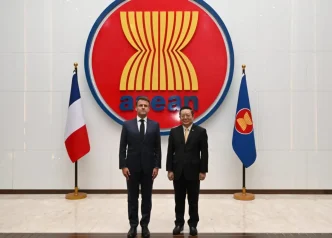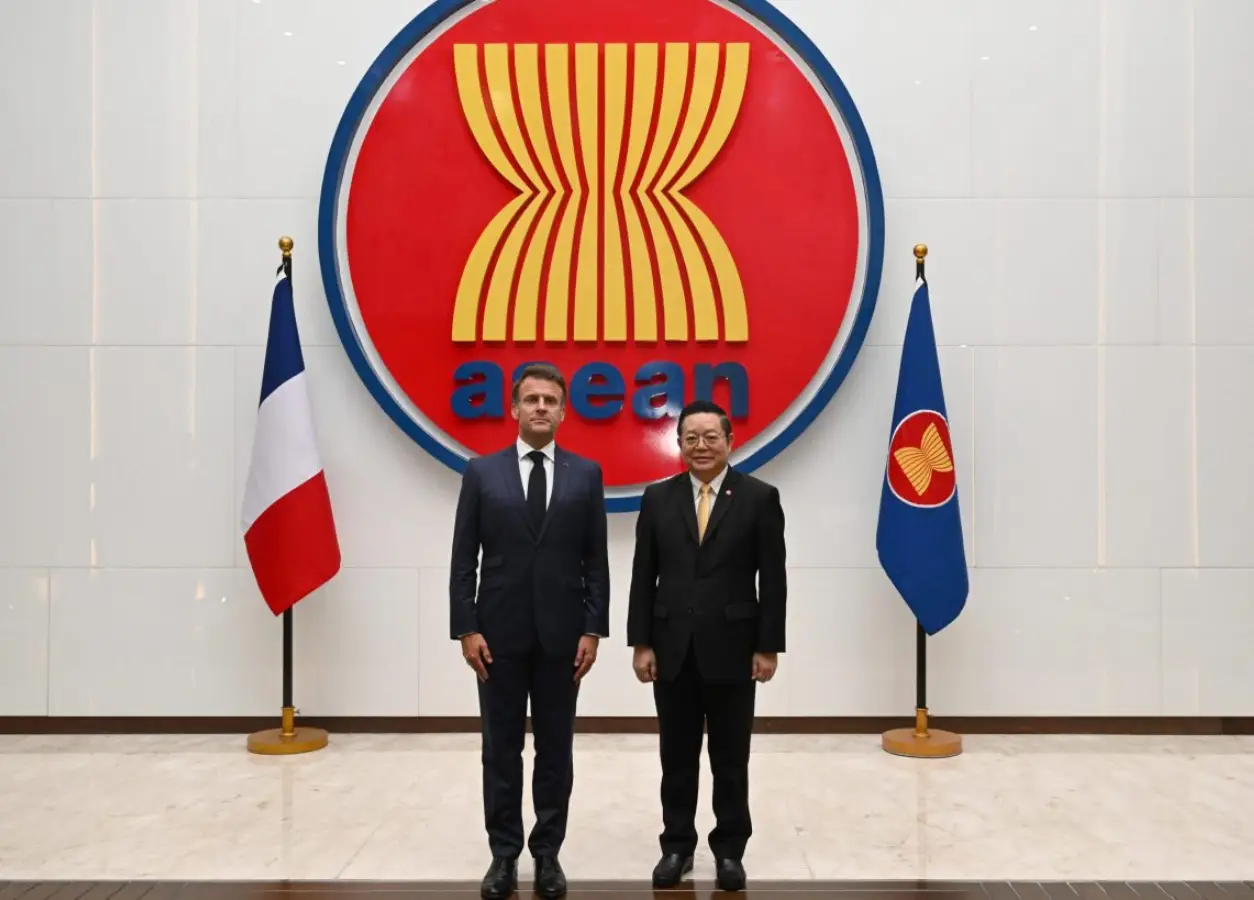French President Emmanuel Macron has concluded a significant week-long tour of South-East Asia, visiting Vietnam, Indonesia, and Singapore from May 25 to May 30, 2025. The tour, marked by high-profile engagements and strategic agreements, underscores France’s ambition to position itself as a key player in the Indo-Pacific region amid competing influences from the United States and China. With a focus on defense, economic partnerships, and geopolitical dialogue, Macron’s journey reflects the unique autonomy French presidents wield over foreign and security policy, setting him apart from many of his European counterparts.
A Bold Diplomatic Push in South-East Asia
Macron’s itinerary began in Vietnam on May 25, marking the first visit by a French president to the country in nearly a decade. Despite historical ties rooted in France’s colonial past and shared cultural connections through the Vietnamese diaspora in France, French economic presence in Vietnam has been limited. This visit aimed to change that narrative, with Macron securing contracts potentially worth €9 billion (US$9.5 billion) for Airbus commercial jets, alongside discussions on future cooperation in nuclear energy, railways, and infrastructure. While the exact value of these deals remains subject to scrutiny—Airbus being a multinational entity rather than solely French—the agreements signal a renewed French commitment to Vietnam.
Vietnam, currently navigating pressures from US trade tariffs of 46 percent and China’s growing regional influence, has responded positively. France now holds the status of a first-level strategic partner in Hanoi’s foreign policy framework, a designation previously reserved for historical allies like China, Russia, and India. This elevation highlights the potential for deeper ties, particularly as Vietnam seeks to diversify its international partnerships.
From Vietnam, Macron traveled to Indonesia on May 28, where defense cooperation took center stage. Celebrating 75 years of diplomatic relations in 2025, France and Indonesia are building on a partnership that includes a US$8.1 billion (S$10.4 billion) deal for 42 Rafale fighter jets, though delivery is yet to commence. Negotiations for two Scorpene-class submarines are also advancing, despite challenges over Indonesia’s demand for offsets, which require French manufacturers to share at least a third of the contract value with local firms. Macron’s visit reaffirmed France’s role as a major military supplier, a notable achievement given recent scrutiny of Rafale jets’ performance in regional conflicts such as the India-Pakistan military standoff.
The tour concluded in Singapore on May 30, where Macron delivered the keynote address at the Shangri-La Dialogue, a premier security forum in Asia. His speech emphasized France’s Indo-Pacific strategy and its positions on global conflicts, including Ukraine and Gaza, positioning France as a mediator distinct from the polarizing influences of Washington and Beijing.
The Unique Power of French Presidency
Macron’s ability to dedicate an entire week to South-East Asia—a rarity among leaders of major Western nations—stems from the unique structure of the French Constitution under the Fifth Republic, established in 1958 by General Charles de Gaulle. Foreign and security policies are considered the president’s exclusive domain, often referred to as the “chasse gardée” or “private hunting ground” of the Élysée Palace. Unlike many European leaders constrained by coalition governments or parliamentary oversight, French presidents appoint foreign and defense ministers to execute their vision, with little room for dissent or independent initiative.
This autonomy persists despite domestic challenges. Macron’s government currently lacks a parliamentary majority, struggles to pass a budget, and may face a second general election in 2025. Yet, these internal issues do not impede his foreign policy agenda, a luxury few other European leaders enjoy. Observers note that the scope of Macron’s authority in international affairs mirrors that of leaders like US President Donald Trump or Chinese President Xi Jinping, rather than his European peers.
Macron’s personal engagement further amplifies this power. Known for his deep interest in foreign and security issues, he often spends hours discussing these topics with journalists and academics, earning him a reputation as a media favorite at international conferences. However, his inclination to challenge conventional wisdom has occasionally led to missteps. In February 2022, he dismissed US intelligence warnings about Russia’s imminent invasion of Ukraine, banking on a personal rapport with Vladimir Putin. Similarly, in April 2023, he suggested that Europe should not follow US policy on Taiwan, a statement later perceived as a diplomatic error from which he has since distanced himself.
Strategic Gains and Regional Implications
Beyond economic and defense agreements, Macron’s tour carried significant geopolitical weight. In Indonesia, he garnered support for a French-Saudi co-chaired international summit on the Palestinian question, slated for late June in New York. Indonesian President Prabowo Subianto, whom Macron affectionately called a “brother,” reiterated a conditional willingness to recognize Israel and establish diplomatic relations if Israel acknowledges an independent Palestinian state—a stance Prabowo first articulated during a visit to Turkey on April 12, 2025. While Israel shows no inclination to meet this condition, the statement bolsters Macron’s narrative that France can lead efforts to alleviate Palestinian suffering and facilitate broader diplomatic normalization in the Muslim world.
In Vietnam, the strategic partnership upgrade positions France as a counterbalance to China’s influence, particularly after Chinese President Xi Jinping’s visit to Hanoi in April 2025. For Vietnam, aligning with France offers a pathway to diversify its foreign relations amid economic pressures from US tariffs. The potential for nuclear and infrastructure collaboration further cements this relationship, though the practical outcomes of these agreements remain to be seen.
Macron’s presence at the Shangri-La Dialogue in Singapore also allowed France to project itself as a reliable and understanding partner in the Indo-Pacific, distinct from the US and China. French officials accompanying Macron emphasized to local media that France and, by extension, Europe aim to offer partnerships with “no strings attached,” a rhetoric echoing French foreign policy since de Gaulle’s era. The challenge for Macron lies in demonstrating that this long-standing slogan carries fresh, actionable meaning in today’s geopolitical landscape.
Criticism and Context
Despite the apparent successes, Macron faces criticism for overstating France’s global influence. Detractors argue that his rhetoric often outpaces the country’s actual capabilities, painting an image of France as a superpower mediator that it struggles to sustain. This perception is not unique to Macron; French presidents have historically positioned themselves as charting a “middle road” between major powers, a stance that can appear more aspirational than grounded.
Yet, at a time when many European leaders are preoccupied with domestic crises, Macron’s focus on international engagement stands out. His tour of South-East Asia, while not without its challenges, demonstrates a proactive approach to diplomacy that contrasts with the inward focus of some of his counterparts. Whether this will translate into lasting influence in the region remains an open question, particularly as France competes with established powers like the US and China, as well as regional actors with deep historical ties.
Looking Ahead
As Macron returns to Paris, the outcomes of his South-East Asian tour will be closely watched. The economic deals with Vietnam, defense agreements with Indonesia, and diplomatic initiatives in Singapore signal France’s intent to carve out a distinct role in the Indo-Pacific. Yet, the true test lies in implementation—whether Airbus contracts materialize, Rafale jets are delivered, and infrastructure projects in Vietnam take shape. For now, Macron’s journey has reaffirmed the enduring power of the French presidency in shaping global narratives, even as domestic uncertainties loom on the horizon. How France builds on these engagements could define its relevance in a region critical to the 21st-century geopolitical order.
















